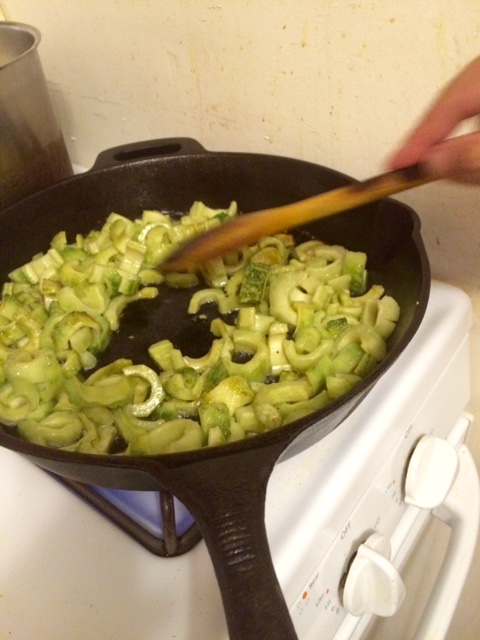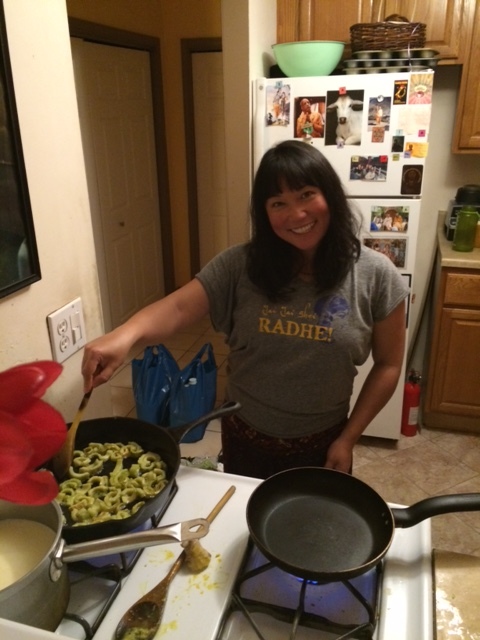“The further I wake into this life, the more I realize that God is everywhere and the extraordinary is waiting quietly beneath the skin of all that is ordinary. Light is in both the broken bottle and the diamond, and music is in both the flowing violin and the water dripping from the drainage pipe. Yes, God is under the porch as well as on top of the mountain, and joy is in both the front row and the bleachers, if we are willing to be where we are.”
--Mark Nepo, from The Book Of Awakening: Having The Life You Want By Being Present To The Life You Have
A few weeks ago I’d happened upon those words and I was blown away. I immediately shared them with a friend and we mused over the evidence of God lurking just beneath the surface of things. Perceived good or perceived bad, he’s everywhere, which we found incredibly comforting. I think Mark Nepo’s words resonated so much with me because I try to live my life in the very way he described it. I look for the extraordinary waiting quietly beneath the skin of all that is ordinary. And very often I find it!
I don’t want to overwhelm anyone with the word God, so replace it with whatever feels appropriate for you. My spiritual teacher, Dhanurdhara Swami, defines God as ‘that being of which no greater can be conceived.’ I started this blog with the idea of bringing spirituality into the kitchen. Inviting you to find sacred opportunities to prepare and share food as you look at the world in a way that expands your inner life. Often, our inner work, or spiritual work, is left to going to church on Sunday, or the days we go to temple. Or only on our meditation cushion or yoga mat. Or maybe we only look for those spiritual nudges during a tragedy, calling on the universe to support us and make things right again. But finding time for prayer, reflection, or gratitude can be any time or any place if we are willing to be where we are.
This past week I was at the funeral of my beloved Uncle Johnny Romero and I was so happy to be with my family despite the reason we were gathered together. Celebrating him and his extraordinary life is truly one of the highlights of my whole year. Many of my friends suffered losses of their own this week, it was alarming to open up Facebook every day and read of another loved one passing. (Big love to the families of Howard Chapman, Grandma Agnes, Ray and Martha Scheurich, as well as to the whole Romero family.)
During the homily at Uncle Johnny’s mass, the Reverend Colin Mulhall dropped some words that measured up to Mr. Nepo’s wisdom. I was so moved I actually got out a pen and took notes on the burial program.
“Our lives are animated by God. The word animate, meaning to give life to, comes from the Latin word animare, [a derivative of anima,] which means soul. He empowers us by taking our good qualities and perfecting them. He makes our lives matter. God gives us soul.”
“We mourn the passing of our loved ones, acknowledging there is an end to their life on earth, but their death actually signifies a continual presence. They’ll always be with us in our hearts and in our minds.”
As I write this blog, I’m reminded of a recipe and a cooking experience that was a perceived failure. I was cooking with my friends Jai and Sybel in one of the kitchens in my Krishna temple in New York City. We were preparing a small feast to end a 10-week spiritual study class given by our teacher Dhanurdhara Swami. Jai, Sybel, and I all stepped away from the centerpiece of our meal, leaving it cooking on the stove. For one reason or another, it went unattended for way too long. When we were finally able to return to the kitchen, our dish was perceived as inedible. Blackened and stuck to the pan! We chose not to serve it to our class and teacher.
In the Krishna tradition, food is prepared and offered to God first before anyone else partakes. And interestingly enough, no one tastes the offering, or prasadam, as the first taste is reserved for God. So essentially you’re cooking on blind faith and with the high intentions of it being delicious. (I also love that when we offer flowers, we never smell them until after they’ve been offered, reserving the first lovely aroma for Krishna.)
Jai went ahead and offered it to the deities and his family ate some later that evening so it wouldn’t go wasted. He told us that it tasted just fine and that they all enjoyed it. So God is in the beautifully plated food at a four-star restaurant and he most definitely is in the blackened pan of a burned dish!
Fried Bitter Melon with Ground Almonds
by Yamuna Devi
Serves 4-6
Ingredients:
- 4 bitter melons, also called karela*, found in Asian produce markets
- Salt – 2 tablespoons
- Warm water – 3 cups
- Ghee or vegetable oil – 4 tablespoons
- Ground almonds or cashews – 2 tablespoons
- Almond or cashew butter – 2 tablespoons
- Paprika or cayenne pepper – 1/8 teaspoon
- Freshly ground nutmeg – 1/8 teaspoon
Preparation:
1. Trim the ends off the bitter melons, slice lengthwise in half, then into quarters, and scoop out the yellow-orange seeds and pulp. Now cut crosswise at ¼ inch intervals. Combine the salt and water in a small saucepan and add the bitter melon. Set aside for 25 minutes, then bring to boil over heat. Parboil for 3 minutes, then rinse in a strainer under running water. Drain and pat dry with paper towels.
2. Heat the ghee or oil in a 7-9 inch frying pan over moderate heat. When it is hot but not smoking, add the bitter melon pieces and stir-fry until two-thirds cooked, about 8 minutes. Stir in the remaining ingredients and continue to cook for up to 5 minutes until well browned. Serve hot or at room temperature.
*There's not a good substitution for bitter melon except another hard to find Asian winter melon. I think that the ingredients would lend themselves to fresh pumpkin, butternut squash, or even sweet potato. Blanching, roasting, or sautéing until tender and then continuing with step 2.







